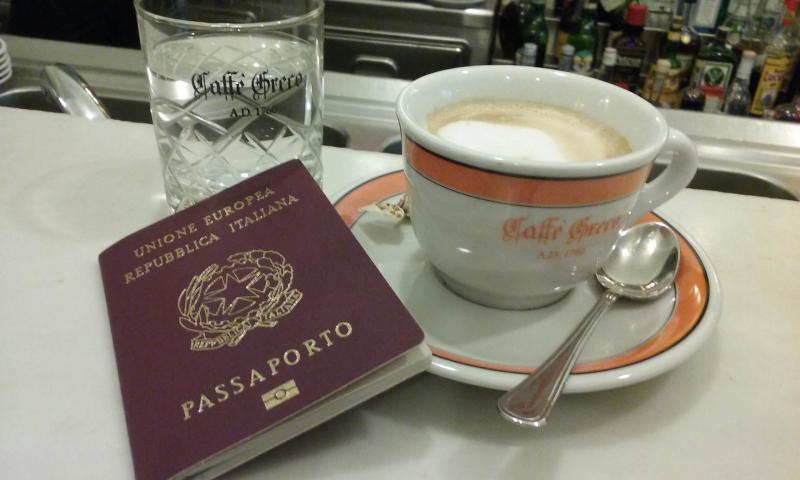My Italian Family, a leading company specializing in Italian Dual Citizenship and Family Research Services, answers some of the most common questions about getting Italian citizenship.
The journey to Italian Citizenship may be long and arduous, but the benefits surely make it worthwhile. Having said that, applicants are faced with many questions regarding eligibility, documentation, timeline and fees. We have provided the answers to a few of the most common questions:
- What is the cost of Italian Dual Citizenship?
- How many Generations Back can I go back to Qualify?
- Can family members apply together?
- Do I need to learn Italian to apply for Italian Citizenship?
- What if my Ancestor came from Trentino Alto Adige, Friuli-Venezia-Giulia, or Veneto?
- Is there a military obligation when I become an Italian citizen?
What is the cost of Italian Dual Citizenship?
There are several answers to that. First, you need to determine whether you have the time (and patience) to gather all the required documents yourself, OR, whether you would like to outsource the entire process to a company that specializes in Italian Citizenship. The fees are obviously different. In addition, the price difference is based on the number of Vital Records that need to be acquired (whether you need to document several generations versus only one, or whether some of your direct ancestors, including you, got divorced and remarried, perhaps more than once, all of which has to be documented). There may be additional legal fees in the event a birth record from New York State requires a court order (the only way to obtain a birth record for a deceased person from the State of New York is through a court order). In addition, once all the records have been procured, a few may need to be amended in case there are misspellings and/or discrepancies.
If you are looking to outsource the entire project, always choose a company that is upfront and transparent regarding the fees they charge; ask them what they charge per individual service, i.e. Italian Vital Records, Certified Naturalization Records or proof of Non-Existence, US Vital Records, Apostilles, Translations to Italian and, if needed, research & amendments.
How many Generations Back can I go back to Qualify?
There is really no limit to the number of generations, provided your Ancestor was born in Italy and emigrated after the beginning of the Kingdom of Italy, 17 March 1861, and did not become a citizen of a foreign country before 1 July 1912. The significance of this date, 1 July 1912, is important and needs to be explained; prior to 1912, when a native-born Italian naturalized in another country, he gave up not only his own Italian citizenship but also that of all his minor children, regardless of where they were born. Even if you meet the criteria because your Italy-born Ancestor naturalized AFTER the birth of the child in a foreign country, if he took the oath before 1912 you do not qualify.

Can Family Members apply together?
Under the established law, every adult must apply on their own through the Italian Consulate that has jurisdiction over where they reside and must provide their own set of required documents. All Italian Consulates require the applicant to provide proof that the applicant is a permanent resident under that Consulate’s jurisdiction and usually this is demonstrated by government issued IDs and utility bills. This requirement is often confusing and frustrating for families who have multiple members who wish to apply at or about the same time and may live in different areas of the country. Unfortunately, each Italian Consulate has slightly different procedures, but they ALL require that adult family members make multiple appointments even if they are applying at the same Consulate. Since it’s very unlikely that family members will be able to apply on the same day, they will be able to tap into the first family member’s document portfolio (sometimes, they have to present copies of all the documents that were already presented and accepted). NOTE: Each family member must fill out the application forms, mainly Forms 1, 2, 3, and/or 4 depending if you have both living and deceased ascendants.
Do I need to learn Italian to apply for Italian Citizenship?
There are two answers depending on which path to citizenship you will be taking:
- if you are applying for Italian Citizenship by descent, i.e. jure sanguinis, you are not required to learn Italian simply because you already are an Italian citizen, you just have to prove it to the Italian Consulate if you reside abroad or to the local Town Hall if you live in Italy.
- if you are applying for Italian Citizenship by marriage, since 2018, you must speak Italian and show an adequate knowledge of the language (passing the level B1 test of the Common European Framework of Reference for Languages - CEFRL). For those lucky female spouses of Italian citizens who were married before 1983, the process is different and thus learning Italian is not a requirement. For those who were married after 1983, males or females, who want to apply for Italian Citizenship via marriage, the only alternative is to start learning Italian and ultimately pass the language test.
What if my Ancestor came from Trentino Alto Adige, Friuli-Venezia-Giulia, or Veneto?
If your Italian Ancestor was born in these regions, in addition to the current eligibility requirements for Italian citizenship, you must also prove that he or she emigrated from Italy AFTER 16 July 1920. This date refers to the effectiveness of the Treaty of Saint Germain with which, at the end of WWI, the Austro-Hungarian Empire territories were assigned to various States. It is listed in the Citizenship Law 379/2000, which regulates the recognition of Italian citizenship to those born in the territories belonging to the ex-Austro-Hungarian Empire, as well as to their descendants. In essence, the “Italian citizenship eligibility issue” linked to the “16 July 1920” requirement is the following: the ancestor who emigrated before 16 July 1920 expatriated as an Austro-Hungarian citizen and not as an Italian citizen (meaning he or she could not pass Italian citizenship on to their children, etc.). If the ancestor emigrated between 25 December 1867 (when the Austro-Hungarian empire was established) and 16 July 1920 (the Treaty of Saint Germain), the recognition of citizenship had to be done according to Law 379/2000, which offered a deadline to apply, i.e. 19 December 2010. Consequently, today, the descendants of ancestors born in the Austro-Hungarian Empire Territories, where the ancestor migrated away before 16 July 1920, cannot apply for Italian citizenship. ONLY if the ancestor was born or emigrated after 16 July 1920, his or her descendants are eligible to apply for Italian citizenship by right of blood.
Is there a military obligation when I become an Italian citizen?
The answer is no; on May 8, 2001, the Italian government passed a law (Art. 7 D. L. 8 May 2001 n. 215) making military service completely voluntary as of January 1, 2007.
MY ITALIAN FAMILY has been helping Italian Dual Citizenship applicants for almost 20 years. Whether you need a specific document, assistance from “Start to Finish”, fast track your application in Italy or follow the normal process here in the US, My Italian Family can help. More at: www.myitalianfamily.com or call TOLL FREE at 1-888-472-0171.









